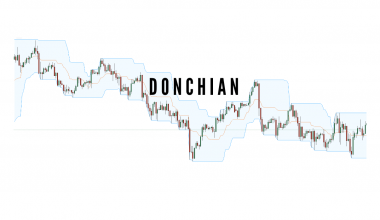Stock trading continues to be a sought-after avenue for investors looking to grow their wealth. Choosing the right stock trading platform is crucial for both seasoned traders and newcomers entering the market. This guide aims to highlight the top stock trading platforms that offer a seamless and efficient trading experience. Emphases were placed on platforms that provide robust features, user-friendly interfaces, reliable market data, and competitive pricing. By the end of this article, you will have a clear understanding of the best places to buy stocks in 2023, enabling you to make informed decisions and pursue your financial goals with confidence
What are Stock Trading Platforms?
Stock trading platforms are software applications or online platforms provided by brokerage firms that enable investors to buy, sell, and trade stocks and other securities. These platforms serve as the interface between traders and the financial markets, providing tools and resources to execute trades, access market data, perform analysis, and also manage investment portfolios.
Best Stock Trading Platforms
There are several popular and highly regarded stock trading platforms available in the market. The following are some of the best ones:
#1. E*TRADE
ETRADE is known for its robust trading platform and extensive research tools. It offers a wide selection of investment products, including stocks, ETFs, options, mutual funds, and bonds. E*TRADE also provides a mobile app for convenient trading on the go.
#2. Charles Schwab
Charles Schwab is a well-established brokerage firm that offers a powerful trading platform with a vast selection of investment options. It provides access to stocks, ETFs, options, futures, and more. Schwab also offers educational resources and excellent customer service.
#3. Fidelity
Fidelity is a reputable brokerage firm known for its comprehensive trading platform and wide range of investment choices. It offers access to stocks, ETFs, options, mutual funds, bonds, and more. Fidelity also provides research tools, educational resources, and a user-friendly mobile app.
#4. Ameritrade
TD Ameritrade offers a comprehensive trading platform with a wide range of investment options, including stocks, ETFs, options, futures, and more. It provides advanced research tools, a user-friendly interface, and competitive pricing.
#5. Interactive Brokers
Interactive Brokers are popular among active traders due to its advanced trading tools and low-cost structure. It offers a wide range of investment options, including stocks, ETFs, options, futures, and more. Interactive Brokers also provides direct market access and customizable trading platforms.
#6. Robinhood
Robinhood is a user-friendly trading platform that gained popularity for its commission-free trading model. It offers a straightforward interface and access to stocks, ETFs, options, and cryptocurrencies. Robinhood is well-suited for beginners and investors looking for simplicity.
#7. Tastytrade
Tastytrade, formerly known as Tastyworks, is a popular online brokerage and financial media company that focuses on providing accessible and educational resources for traders and investors. It is designed to be user-friendly and intuitive, catering to both beginner and experienced traders. The platform provides advanced charting tools, option trading capabilities, a customizable layout, and fast trade execution.
Best Stock Trading Platforms for Beginners
There are several stock trading platforms suitable for beginners, however, there are certain things to look out for when choosing the best stock trading platforms for beginners. When choosing a stock trading platform, one of the things to consider is ease of use, because you don’t want a complicated interface. Again, you will also have to consider educational resources, research tools, customer support, and their fees. The fees are something beginners must look out for too. Finally, you will have to consider what it is that you want as a beginner, or more specifically, your specific needs as a beginner investor, before making a decision.
The following are some of the best trading platforms for beginners;
#1. Robinhood
Robinhood gained popularity for its user-friendly interface and commission-free trades. It offers a simplified trading experience, making it a popular choice for beginners. However, it’s worth noting that Robinhood has faced some controversies and limitations, so it’s essential to research and understand its features before using it.
#2. TD Ameritrade
TD Ameritrade’s thinkorswim platform is well-regarded for its comprehensive tools and resources. It offers a range of educational materials, including webinars and tutorials, to help beginners learn about investing and trading. TD Ameritrade also provides a paper trading feature, allowing you to practice trading without risking real money.
#3. E*TRADE
ETRADE offers a user-friendly platform with robust research and educational resources. It provides access to a wide range of investment products and tools suitable for beginners. E*TRADE also offers a paper trading feature and a mobile app for convenient trading on the go.
#4. Fidelity
Fidelity is known for its extensive research offerings and educational resources. Its trading platform is user-friendly and provides access to a variety of investment options. Fidelity also offers commission-free trades on select ETFs, making it cost-effective for beginners.
#5. Charles Schwab
Charles Schwab offers a beginner-friendly platform with a range of educational resources and research tools. It provides commission-free trades and access to a broad selection of investment products. Charles Schwab also has a strong customer support system to assist beginners with any questions or concerns.
Stock Trading Platforms Free
While it’s true that there are free stock trading platforms, are they entirely free? There are platforms that claim to offer free trading services but then, have hidden costs. Therefore, ensure there are no hidden fees like regulatory fees, SEC fees, or fees for additional services like margin trading. The following are a few notable ones:
#1. Webull
Webull is another platform that offers commission-free trading for stocks, ETFs, and options. It provides a user-friendly interface and offers advanced trading tools and research resources. Webull also provides extended trading hours for eligible users.
#2. M1 Finance
M1 Finance is a platform that allows users to invest in a portfolio of stocks and ETFs for free. It offers a unique “pie” investing concept where you can create and customize your investment portfolio. M1 Finance also offers automated investing and retirement accounts.
#3. Robinhood
Robinhood gained popularity for its commission-free trading model. It allows users to trade stocks, ETFs, options, and cryptocurrencies without paying any commission fees. However, it’s important to note that Robinhood makes money through other avenues, such as order flow and margin lending.
#4. SoFi Invest
SoFi Invest is a platform that offers commission-free trades for stocks, ETFs, and cryptocurrency. It provides a user-friendly mobile app and also offers access to automated investing and retirement accounts.
#5. Public
Public is a social investing platform that offers commission-free trades for stocks and ETFs. It focuses on community and social interaction, allowing users to follow other investors and share insights. Additionally, Public also offers fractional shares, making it easier for beginners to invest in expensive stocks.
What Platforms Are Best for Buying Stocks?
The following are some popular platforms that are commonly used for buying stocks:
-
Online Brokers: TD Ameritrade, E*TRADE, Fidelity, Charles Schwab, and Interactive Brokers. Robo-Advisors: Betterment, Wealthfront, and M1 Finance.
-
Financial Institutions: Bank of America Merrill Edge, Wells Fargo Advisors, and Chase
-
Mobile Trading Apps: Robinhood, Webull, and E*TRADE offer intuitive interfaces and allow you to buy and sell stocks directly from your mobile device.
-
Full-Service Brokerage: Morgan Stanley, Merrill Lynch, and Goldman Sachs
Which Broker Is Best for Stock Trading?
The following are a few popular options:
-
TD Ameritrade
-
Charles Schwab
-
Fidelity
-
Interactive Brokers
-
ETRADE
-
Robinhood
Which Trading Platform Is Best for Profit?
According to Investopedia, scalping is the best trading platform for profit. First, it
offers traders quick gains even in small price movements and in short periods. Secondly,
Scalping allows traders to take advantage of numerous trading opportunities.
How to Buy Stocks With Only $100?
If you have only $100 to invest in stocks, the following steps will help you get started:
#1. Set up a Brokerage Account
Choose a reputable online brokerage firm that allows you to open an account with a low initial deposit. Some popular options with no or low account minimums include Robinhood, SoFi Invest, and M1 Finance.
#2. Research and Select Stocks
Conduct thorough research on the stocks you’re interested in. Look for companies with strong fundamentals, growth potential, and a track record of success. Consider diversifying your portfolio by selecting stocks from different sectors or industries.
#3. Determine Your Investment Strategy
Decide on your investment strategy based on your financial goals, risk tolerance, and time horizon. Consider whether you want to invest in individual stocks or opt for exchange-traded funds (ETFs) that provide exposure to a basket of stocks.
With only $100, it may be challenging to purchase whole shares of expensive stocks. Look for brokers that offer fractional shares, which allow you to invest in a fraction of a share based on the amount you have. This way, you can still invest in companies that have higher stock prices.
#5. Place Your Order
Once you have selected the stocks or ETFs you want to invest in, place your order through your brokerage account. Specify the number of shares or the dollar amount you want to invest. Keep in mind that there may be transaction fees or commissions associated with buying and selling stocks, so consider those costs.
#6. Monitor and Manage Your Investments
After purchasing stocks, it’s important to regularly monitor your investments. Stay informed about the companies you’ve invested in and keep an eye on market trends. You may want to consider setting up alerts or notifications to stay updated on any significant news or price changes.
Is Robinhood Good for Beginners?
Robinhood is often considered a good option for beginners due to its user-friendly interface, simplicity, and commission-free trading. Robinhood can be a suitable option for beginners who prefer a simple, mobile-first trading experience with commission-free trades. However, it’s important to note that no platform is without its limitations, and it’s advisable to research and compare different platforms to determine which one aligns best with your needs, investment goals, and preferences.
Which Trading Is Better for Beginners?
The following are two common trading methods often considered suitable for beginners: These are long-term Investing and swing trading
Can I Start Trading With $100?
Yes, it is possible to start trading with $100. However, it’s important to note that trading with a smaller amount of capital can have limitations and considerations.
To start trading as a beginner, here are some steps you can follow:
-
Educate Yourself
-
Set Clear Financial Goals
-
Choose the Right Brokerage Account.
-
Open a Trading Account
-
Fund Your Account
-
Create a Trading Plan
-
Start with Simulated Trading
-
Execute Trades
-
Continue Learning and Evaluating
-
Practice Risk Management
- ORGANIZATIONAL STRUCTURE: Meaning, Types & Examples
- WHAT IS A DIVIDEND: Example, Stocks, Payment on Shares, & Income
- BEST INCOME STOCKS: Top Reality, Passive Income Stocks & Difference
References






